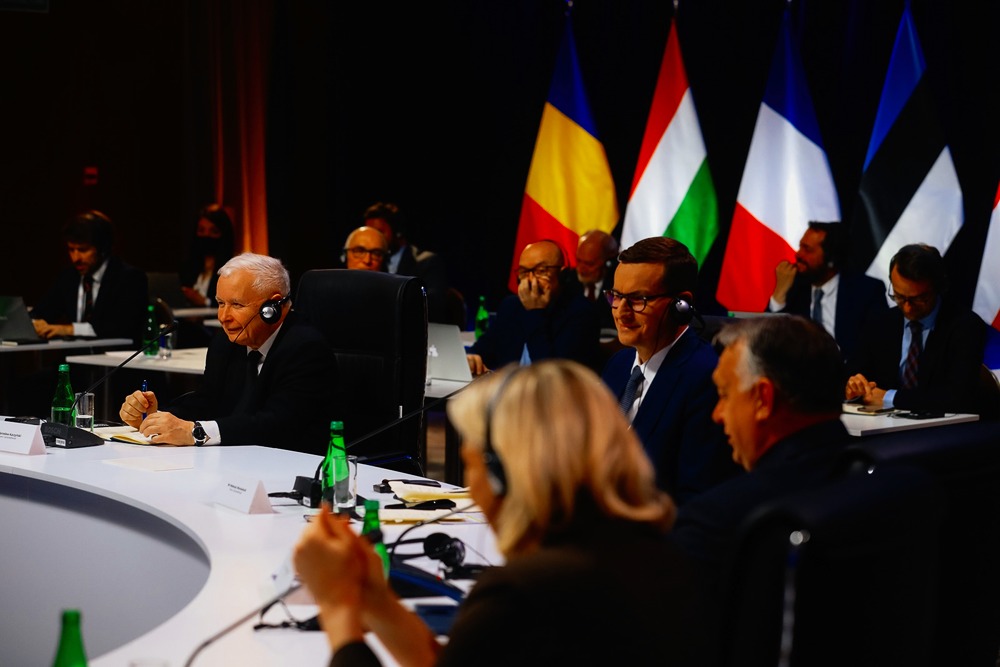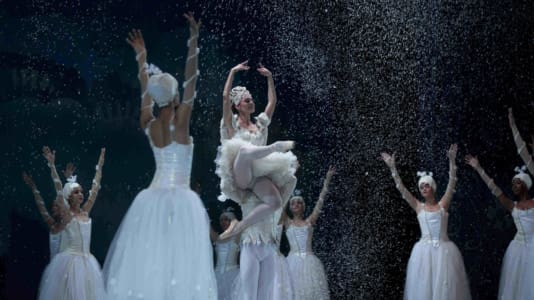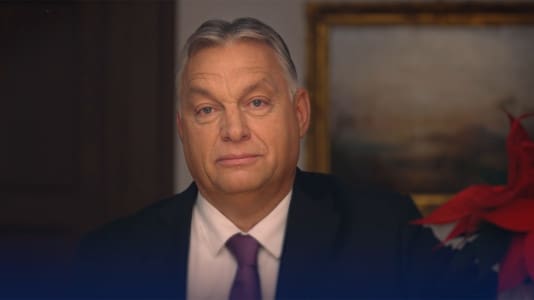Germany’s new government is raising grave concerns from European conservatives, especially over its move towards creating a federalized Europe, according to Poland’s Law and Justice party (PiS) leader Jarosław Kaczyński, who was speaking at the Warsaw Summit on Saturday, along with the leaders of several European conservative and right-wing parties
Kaczyński focused his speech on the coalition agreement of the new German government, which emphasized that the goal of European integration should be the creation of a “European federal state organized in accordance with the rule of subsidiarity and proportionality and with a card of basic rights” as basis for its functioning.
Kaczyński warned that such a vision of Europe was “a Europe of a certain kind of hierarchy.” He added that in his opinion and that of his colleagues, this vision was not good news for Europe and the future of the European Union. He noted that the current method of community in the EU was better.
In addition to Kaczyński, other participants of the summit included Polish Prime Minister Mateusz Morawiecki, Hungarian Prime Minister Viktor Orbán, National Front leader Marine Le Pen, and Spanish VOX leader Santiago Abascal.
The leader of Poland’s ruling conservative party stressed that the vast majority of European states did not want to relinquish their sovereignty, and declared that the creation of a centralized government that could actually ensure equal treatment to subjects of differing power and geographical location was a utopian idea and impossible to fulfill.
Kaczyński explained, that another threat — in addition to loss of sovereignty — was the loss of democracy.
“If democracy is meant to be something real, if it is meant to be something that empowers the citizens and makes them sovereign, then it must be based on some kind of common feeling of sense and understanding formed from different types of cultural codes and political culture, which are usually grounded in the broader understood culture of a particular state,” he said.
Jarosław Kaczyński:
Today in Europe, and not only in Europe but the entire Western world — as it used to be called until not so long ago — freedom is in retreat.
He warned that if these factors were removed, then we would be dealing with empty democratic procedures which would not form any sort of real democratic mechanism, and would only serve as cover for more powerful elements in an oligarchy.
PiS’ leader also spoke about the radical threat to freedom in not just Europe, but the entire Western world, in the form of political correctness.
“Today in Europe, and not only in Europe but the entire Western world — as it used to be called until not so long ago — freedom is in retreat,” warned the Polish leader.
He pointed out that a mechanism of oppression was being built against those who did not want to submit to certain rules, which was shocking from the point of view of traditional culture.
“If we constructed such a Europe, if we agreed to it, then we would create a very soft civilization in a world where hard civilizations exist. They are even located very close to the place we are currently residing in. There are only 200 kilometers to Poland’s Eastern borders from here,” he said.
Kaczyński believed that such a European civilization would not last for long as it would be abused by the aforementioned powerful hard civilizations.
The statesman declared that a response should be prepared towards the German proposal of a federalized Europe. This response should maintain the rule of European unity as it was necessary in the form of a permanently institutionalized system of cooperation of European states, which could even be very far-reaching. As an example, he pointed to defense issues and Europe’s empowerment in the military sphere.
“I believe that this is a very serious challenge. I believe that it is possible, maybe not at this summit but during the course of our next actions, to respond to this challenge in a constructive manner, so that we won’t just say ‘no’ but also offer a different plan and proposal for Europe,” he said.





